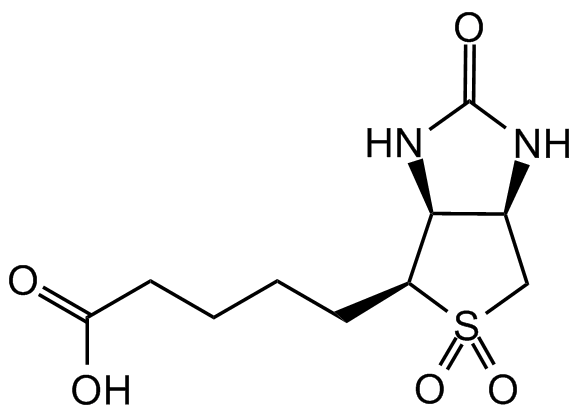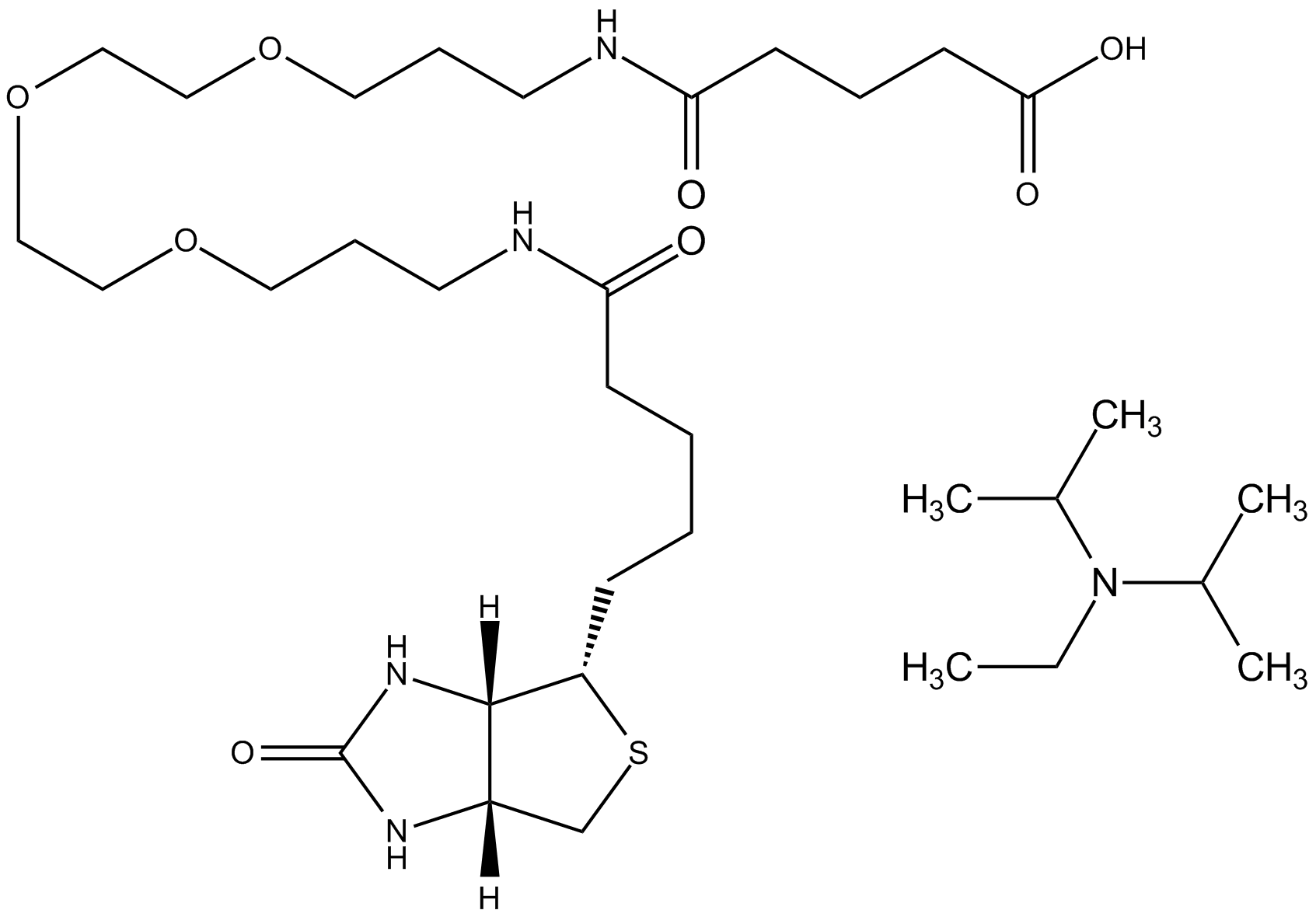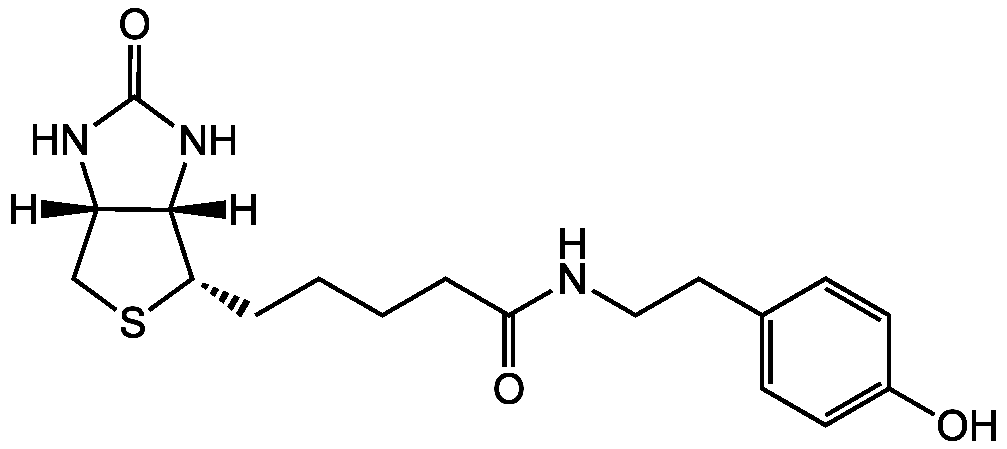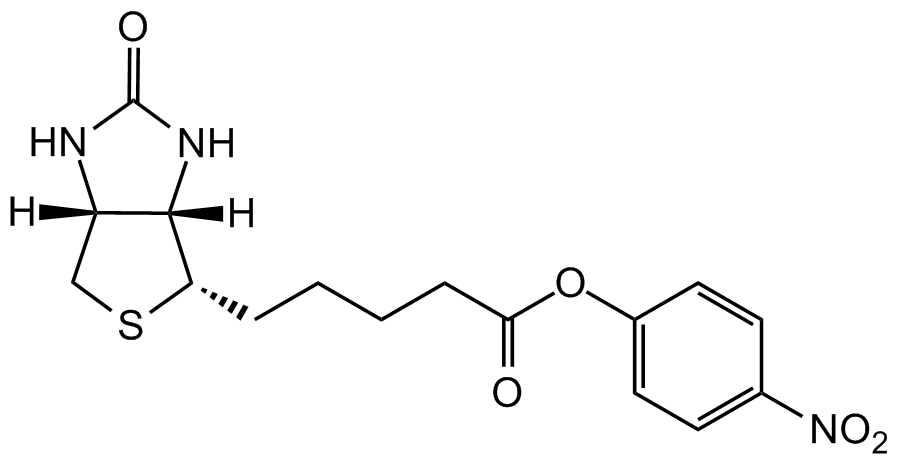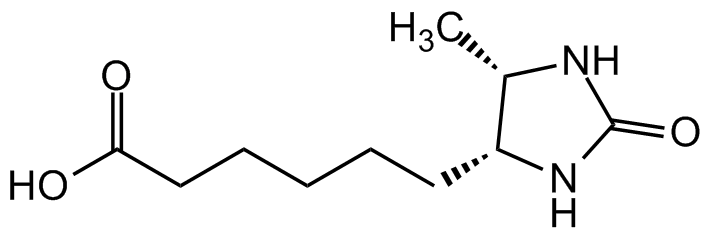
Chemical Structure
Sulfo-NHS-LC-Biotin sodium salt [127062-22-0,191671-46-2] [127062-22-0]
CDX-B0310
Product group Molecular Biology
Overview
- SupplierChemodex
- Product NameSulfo-NHS-LC-Biotin sodium salt [127062-22-0,191671-46-2] [127062-22-0]
- Delivery Days Customer2
- CAS Number127062-22-0
- CertificationResearch Use Only
- Estimated Purity>90%
- Molecular FormulaC20H29N4NaO9S2
- Molecular Weight556.59
- Scientific DescriptionChemical. CAS: 191671-46-2 127062-22-0. Formula: C20H29N4NaO9S2. MW: 556.59. Sulfo-NHS-LC-Biotin is an amino-reactive biotinylation reagent with a long spacer arm. The 6-aminocaproic acid spacer arm provides distance between the biotin and the target ligand which helps alleviate steric hindrance, in addition it forms permanent amide bonds. The sodium sulfonate groups render this compound water-soluble and prevent it from crossing the lipid bi-layer of the cell membrane, making it a tool to label cell surface proteins. In addition, Sulfo-NHS-LC-Biotin is used to biotinylate antibodies, proteins, peptides, or amino acids by reacting with primary amines as found in the N-terminus and Lysine side chains. Optimal reaction conditions are at a pH of 7-9. Avoid amine-containing buffers, which may compete in the acylation reaction. - Sulfo-NHS-LC-Biotin is an amino-reactive biotinylation reagent with a long spacer arm. The 6-aminocaproic acid spacer arm provides distance between the biotin and the target ligand which helps alleviate steric hindrance, in addition it forms permanent amide bonds. The sodium sulfonate groups render this compound water-soluble and prevent it from crossing the lipid bi-layer of the cell membrane, making it a tool to label cell surface proteins. In addition, Sulfo-NHS-LC-Biotin is used to biotinylate antibodies, proteins, peptides, or amino acids by reacting with primary amines as found in the N-terminus and Lysine side chains. Optimal reaction conditions are at a pH of 7-9. Avoid amine-containing buffers, which may compete in the acylation reaction.
- SMILESO=C(NCCCCCC(ON1C(CC(S(=O)([O-])=O)C1=O)=O)=O)CCCC[C@@H]2SC[C@@]3([H])[C@]2([H])NC(N3)=O.[Na+]
- Storage Instruction-20°C,2°C to 8°C
- UNSPSC41115800

